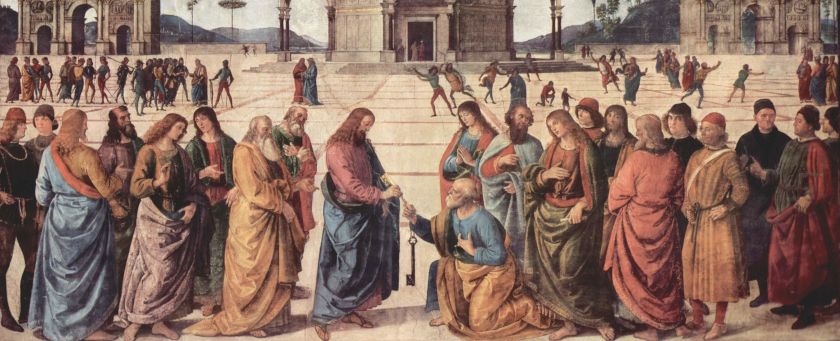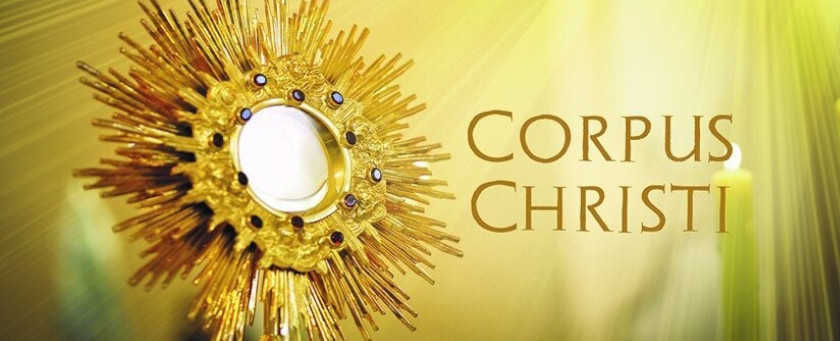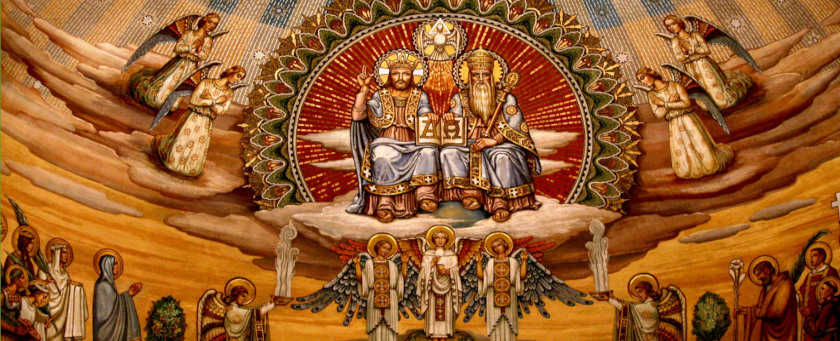Who Do You Say that I Am?
Twenty-First Sunday of Ordinary Time, Year A

Readings:
Is. 22:19-23; Ps. 138; Rom. 11:33-36; Matt. 16:13-20
God has a plan for your life. I know I’ve preached on this idea before, but it’s true. We see this in all three of our readings today. In the first reading, the Lord replaces Shebna, the master of the palace, with Eliakim. I learned something interesting from our pastor yesterday: The master of the palace was essentially the gate keeper, and he was given the keys, which he wore on his shoulder, not only as a symbol of his status, but also of his responsibility to open the gates for those seeking the king, and to close them off to his enemies. This would have been a position of honor, not just for the master of the palace, but also for his whole household.
What I would like to add is the way in which the names of certain individuals in the Hebrew Scriptures signify their role in the story. Eliakim, for instance, is a combination of two Hebrew words, El, which is short for Elohim, which means LORD, and qum, which means ‘to stand or set up.’ Qum is generally used in the sense of a rise in status. So Eliakim means “God sets up,” and within the context of the passage we heard today, God raises, quite literally, Eliakim, to a higher position within the royal court. It is as if God is fulfilling the purpose for which Eliakim was named. God has a plan for your life.
St. Paul echoes this idea of God’s plan when he exclaims, “Oh, the depth of the riches and wisdom and knowledge of God…For from him and through him and for him are all things.” In other words, God is above all. It was He who set the Universe in motion. Further, there is nothing we can add to God, rather, everything we have is because of him. And it is through him, and with him, and in him, that we live and move and have our being. God has a plan for our life, and as part of that plan he sent his only begotten Son to show us the way.
But, in his omniscience, Jesus knew that he would be handed over to the elders, the chief priests and the scribes; he knew that he would be sold out by one of his own; he knew that he would have to suffer, die, and rise again on the third day. He knew this because he is God, but what of the Church he came to establish? How will it be organized? Who would be responsible? Who will be its gatekeeper, the master of his palace while he is away? To determine this, Jesus asks his disciples two simple questions: Who do people say that I am, and who do you say that I am? Each question is directed at the disciples, but there is only one right answer. People will say one thing, maybe another, but the only answer that truly matters is the one they give themselves. And who among them was the first to speak up? Simon, son of Jonah.
Now, for a brief word study on Simon. In Hebrew, the name Simon means, “he who hears,” which is ironic, since it would appear that Simon is always saying something when he should probably be listening. But, within the context of today’s Gospel passage, it would seem that despite all his gaffs, Simon has been listening all along. And so, he confesses to Jesus, “You are the Christ, the Son of the living God.” And Jesus praises him, saying, “Blessed are you, Simon son of Jonah. For flesh and blood has not revealed this to you, but my heavenly Father.” Such a revelation does not come from the senses alone, but through faith. And since Simon’s faith enables him to realize that Jesus is the Christ, he not only fulfills the purpose for which he was named, i.e. to listen to God speaking to his heart, but Jesus raises him to a new status, by giving him a new name. Jesus says, “And so I say to you, you are Peter, and upon this rock I will build my church….”
Peter, or Cephas, is Greek for “rock.” This is a play on words, though, because Cephas also reflects Simon’s personality: rocky. Jesus knows that Rocky has what it takes to lay the foundation for the Church. And so, he gives him the keys, as he did for Eliakim in the past, along with the charge, “Whatever you bind on earth shall be bound in heaven; and whatever you loose on earth shall be loosed in heaven.” With Rocky holding the keys, Jesus knows that the Church will be allowed to grow and flourish, because Peter will open the gates to all who seek Christ, and defend the Church against those seeking to tear it down.
What about us? If we were to put ourselves in the scene with Jesus and the disciples, how would we answer his questions? Who do people say that he is? What about people in our own circles, relatives, friends, social media? What are they saying about Jesus? Do they talk about him at all? There can be some pretty negative stuff out there about Christianity. But, then, in the midst of all that, Jesus asks us: Who do you say that I am. Will we listen like Simon, who confesses in all faith that Jesus is the Christ, or will we allow some of the outside world to influence what we believe? Remember, flesh and blood does not reveal to Simon what he confesses, nor will it for us. God has a plan for your life. That plan began before he formed us in our mother’s womb, continues through the grace of Baptism and the sacramental life, and sets us on a path. I believe our presence here speaks volumes about what we believe, especially during these difficult times. So, may our hearts remain open, may we listen like Simon, and profess like Peter, that the rock of our faith is Jesus Christ, the Son of the Living God! And may we like, Eliakim, be raised up, to the dignity of sons and daughters of the Father, heirs to the kingdom, children of God.
Given during the COVID-19 pandemic.





Twitter
Facebook
Pinterest
Email